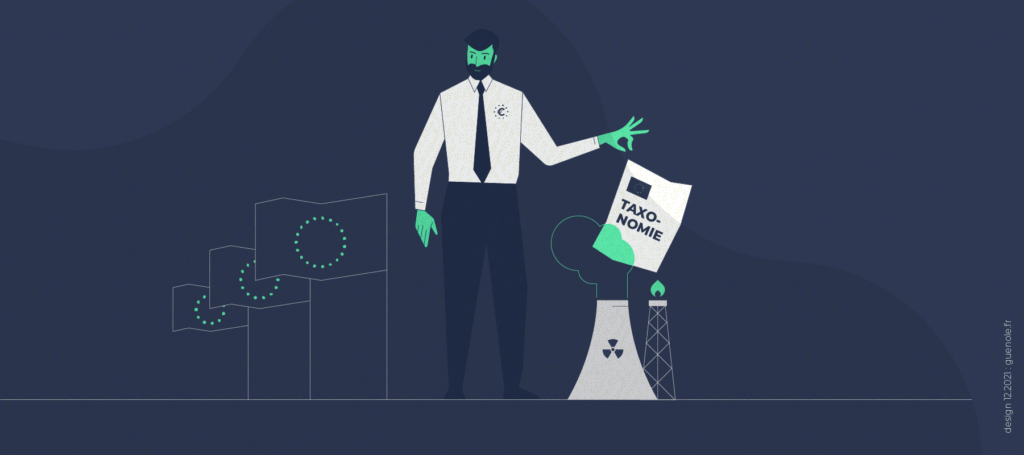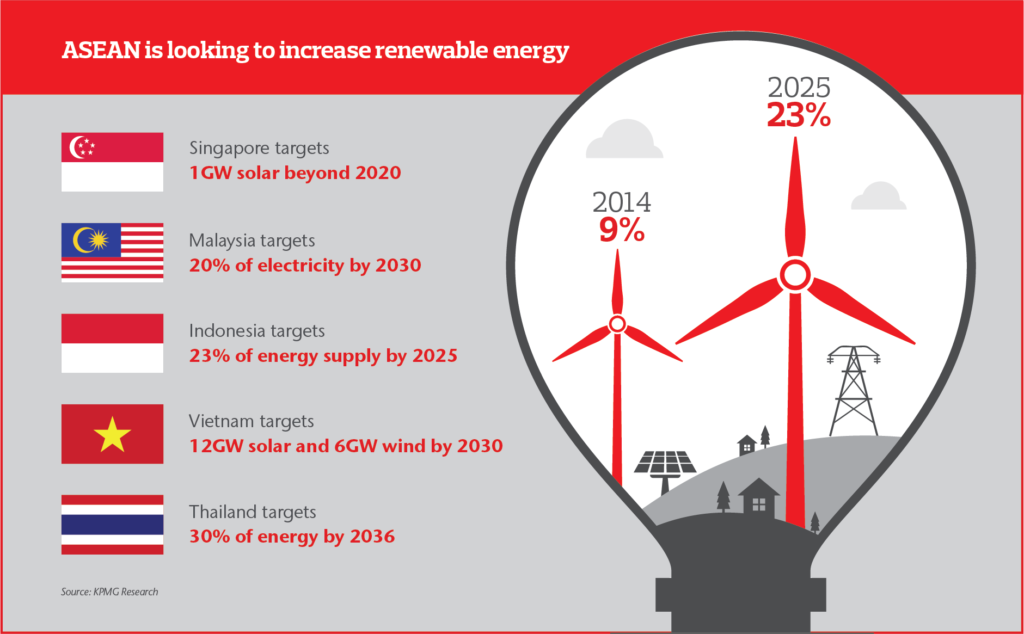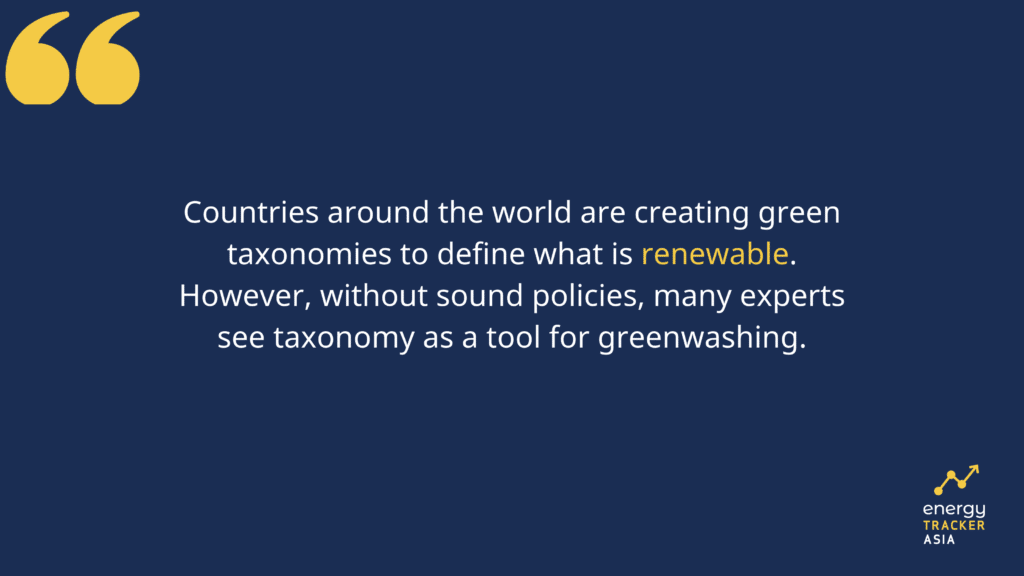Green Taxonomy: A Tool for Greenwashing
Source: ReCheck
13 June 2022 – by Eric Koons Comments (0)
Countries around the world are creating renewable energy taxonomies to define what is renewable. Yet, many experts see taxonomy as a tool for greenwashing. The idea of green taxonomy is very much necessary. It aims to prevent single corporations from playing with language to make consumers think that their products are greener than they really are. However, issues can arise around the types of technologies that these policies define as sustainable. Green finance and sustainable economic activities are welcome but not greenwashing in the name of sustainable investment.

The Issues Surrounding Green Taxonomies
From the European Union to South Korea, the reliance on LNG for power generation is increasing and will continue to do so. The energy crisis of 2021/2022 has made even the biggest of the world economies, including China and the United States, increase fossil fuel exports and increase the production of thermal plants that were supposed to have been shut down under the Paris Agreement. While green taxonomies such as EU taxonomy are welcome and have resulted in over 680 local regulations and taxonomy-like documents, the inclusion of transitional fossil fuels in the equation has many worried.
Nuclear Green Taxonomy
Under the heading of transitional fossil fuels, many are relying on temporary thermal power plants (burning coal) and natural gas plants to bridge the gap that renewable energy generation cannot currently meet. The introduction of nuclear energy in the “green” taxonomy has given hope to some climate activists. However, others warn of the Chernobyl and Fukushima incidents, adding that nuclear energy is not renewable.
ASEAN Green Taxonomy
While the two sides wage war over what technologies are green, efforts to unveil greenwashing practices have persisted. ASEAN (Association of Southeast Asian Nations) put forward its own taxonomy to help clarify what technologies are green and how to deal with greenwashing practices. ASEAN’s Roadmap for Sustainable Capital Markets aims to deal with regions increasing their power demand and develop infrastructure in this fast-developing part of the world.
Taxonomy of Greenwashing
All ASEAN members have signed the Paris Agreement and are committed to climate change mitigation. Several countries in the region are also increasing their reliance on renewable energy sources. Total production capacities reached over 400 GW in 2020. The ACMF (ASEAN Capital Markets Forum) has also strongly advised addressing greenwashing concerns. In response to these concerns, many countries are introducing their own taxonomies.
But are all of these taxonomies as good as they sound?

Korean Sustainable Finance Taxonomy (K-Taxonomy)
The Korean Sustainable Finance Taxonomy was introduced as a resource to support meeting the goals outlined in the Paris Agreement. The K-Taxonomy gives directions for South Korea’s energy transition and future energy mix. The accusations of greenwashing sprung up due to the inclusion of LNG in the green energy mix.
Greenwashing Taxonomy in Japan
On the other hand, Japan is developing a “transition” taxonomy. This is a set of definitions and indicators that can help decarbonise carbon-heavy industries, such as steel and concrete. With every country having a unique approach to reaching its zero-carbon goals, Japanese financial sector also wants to see a more unified approach to the issues relating to the energy transition. Every company has its understanding of what green is. However, this is hardly an efficient approach to a burning issue.
Indonesia’s Green Taxonomy
Indonesia’s green taxonomy continues the government’s efforts to provide more funding from the financial institutions to sustainable businesses. From the current 20% of investments coming from Indonesia’s banks, the government hopes to see that number rise to 30%. This is the largest attempt to nudge the private sector into prioritising green investments. However, as the investors’ approach is voluntary, the taxonomy itself is not likely to defund the red activities in the green-yellow-red spectrum.

The World Needs Taxonomies to Achieve Environmental Objectives – But Current Policies Are Lacking
Although green taxonomies are not likely to introduce mandatory changes in the immediate future, their existence helps delineate greenwashing practices. This ultimately helps curb the largest polluters from presenting their activities as “eco-friendly”. The world sees that the idea of green taxonomy is valuable.
However, concerns over countries including nuclear energy and LNG as “green” energy forms are worrying. This promotes the construction of new natural gas plants and opens the door for international lobbying to weaken the taxonomies’ goals on what a successful energy transition looks like.

by Eric Koons
Eric is a passionate environmental advocate that believes renewable energy is a key piece in meeting the world’s growing energy demands. He received an environmental science degree from the University of California and has worked to promote environmentally and socially sustainable practices since. Eric’s expertise extends across the environmental field, yet he maintains a strong focus on renewable energy. His work has been featured by leading environmental organizations, such as World Resources Institute and Hitachi ABB Power Grids.
Read more